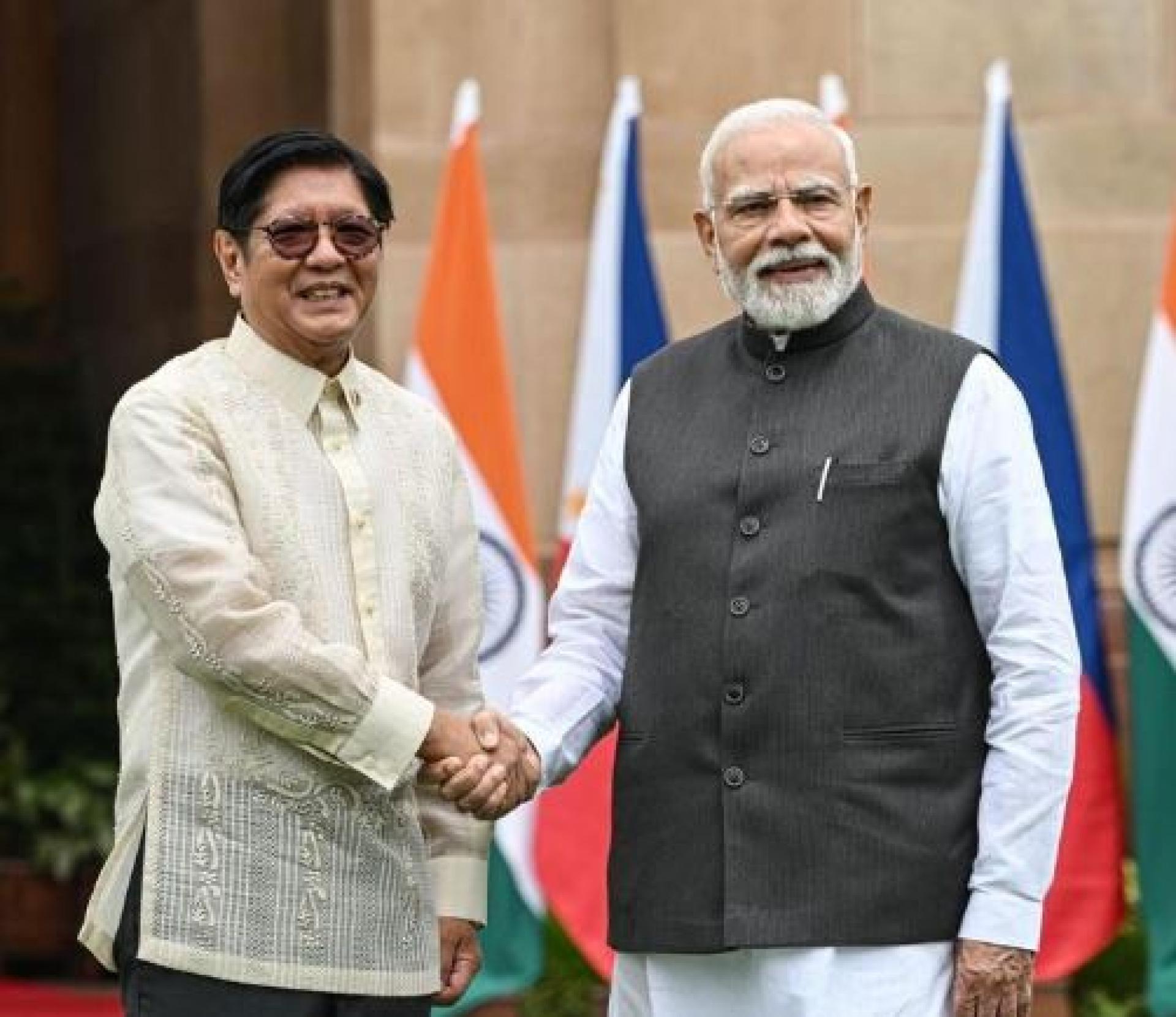(New Delhi, Comprehensive Report on the 8th) Philippine President Marcos Jr. emphasized that the Philippines does not wish for war, but is preparing well for self-defense.
On Monday, Marcos Jr. arrived in India, beginning a five-day visit. In an exclusive interview with India's "Firstpost" yesterday, he said he hopes to avoid war with China over the West Philippine Sea issue, but escalating tensions are forcing Manila to take action, including advancing the modernization of its military.
Marcos Jr. said: "Let me be clear, we are not preparing for war, we are only responding to the challenges we are facing. These tensions have escalated over the past few years, so this is just a reaction to the situation. We must do this, it is our duty to defend our country."
He acknowledged that the territorial disputes between the Philippines and China will not disappear in the short term, but he hopes the issue can be kept at a controllable level. "I don’t know if we’ve reached that level yet. I hope to de-escalate tensions, and also hope to tone down the rhetoric a bit."
Marcos Jr. also said the Philippines has an urgent need to build strategic partnerships with like-minded countries such as India to ensure regional security.
"What we want to do is not complain about everything China does, but to form an alliance. We are not against anyone, we just seek to defend our territory and hope other countries will respect our sovereignty."
The Philippines and India announced the establishment of a strategic partnership during Marcos Jr.'s visit to India. Both the Philippines and India have border disputes with China: the Philippines with China in the South China Sea, and India with China in the Himalayas.
Marcos Jr. expressed strong confidence in the United States, the country's longtime ally, believing that if the Philippines faces security challenges—especially those involving the South China Sea—the U.S. will defend the Philippines.
"I firmly believe this commitment is unwavering. I am not surprised by their commitment, because we have a very long-standing history of collaboration with the United States."
U.S. Defense Secretary Lloyd Austin reaffirmed Washington’s "firm" commitment to the U.S.-Philippines Mutual Defense Treaty during his visit to Manila in March of this year.
Marcos Jr. also mentioned that if mainland China invades Taiwan, the Philippines may inevitably be drawn into a "full-scale war" with China.
Asked whether, if mainland China invades Taiwan, he would be willing to allow the U.S. to use Philippine resources and bases to defend Taiwan, Marcos Jr. did not answer the question directly, but instead explained the Philippines' disadvantaged position in war.
He pointed out that from Laoag in northern Luzon, Philippines, to Kaohsiung in Taiwan takes only 40 minutes by flight. "From a practical perspective, if China and the U.S. clash over Taiwan, given our geographic location, we simply cannot stand aside."
Moreover, there is a large Filipino community in Taiwan; if a conflict erupts between mainland China and Taiwan, the Philippines may be drawn in for the sake of protecting its citizens.
